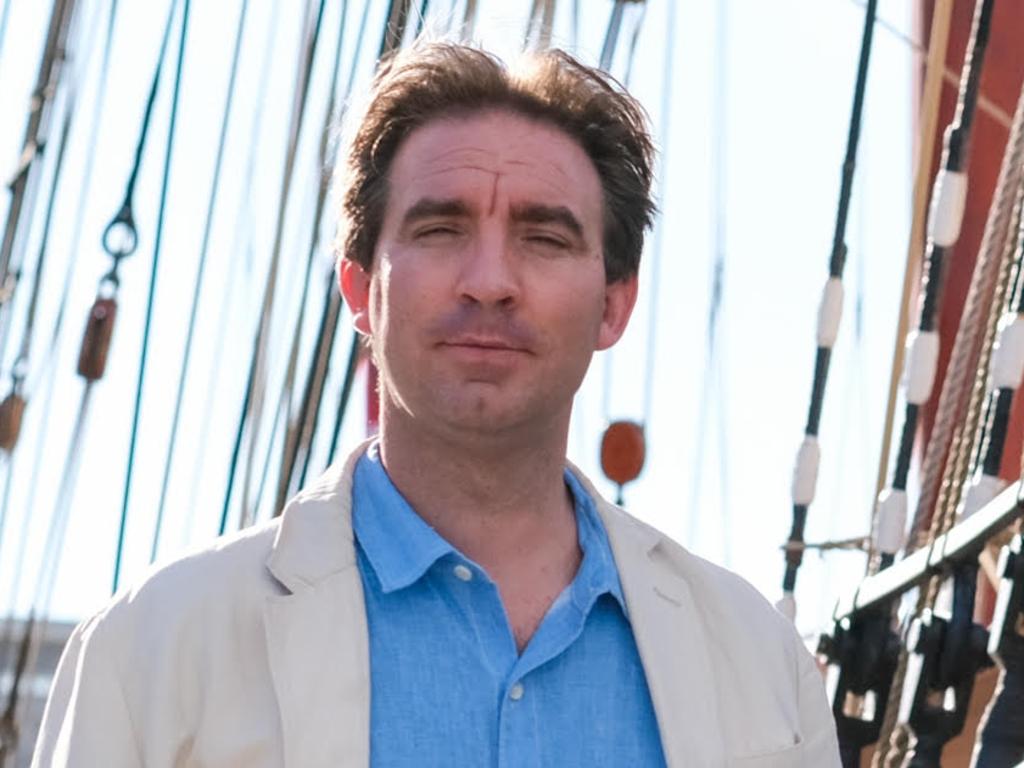Charles Darwin-inspired voyage ends two year journey around the world
After two years retracing Charles Darwin’s voyage around the world on a mission to inspire young conservationists, skipper Stewart McPherson is ready to return home to Australia.

After two years skippering the Dutch tall ship Oosterschelde, retracing Charles Darwin's voyage aboard the HMS Beagle, Stewart McPherson is ready to relax with a cocktail in the Blue Mountains.
The British naturalist, who lives in Sydney, said while the two-year global conservation expedition had been gruelling, his pursuit to train and empower the next generation of environmental leaders had been an overwhelming success.
Branded the “world’s most exciting classroom”, the Oosterschelde departed from Plymouth Harbour in the southwest of England in August 2023 on a 43,000-nautical-mile odyssey around the world that included stops in Sydney and Hobart last year.

Now at the conclusion of its epic journey, the Oosterschelde has docked in London, the city where Darwin’s On the Origin of Species was first published in 1859.
“We are basically the end of the voyage now and looking back on it, it’s been an incredibly intense two years,” Mr McPherson told The Australian.
“I honestly think we’ve done everything we possibly could to try and drive forward that message that conservation isn’t about what we’ve lost, it’s about what we still have.”

Recreating Darwin’s expedition on the Beagle nearly 200 years ago, which inspired his theory of natural selection, more than 100 young people boarded the Oosterschelde to study the conservation of a particular endangered species and was charged with charting a way forward for its survival.
“We’ve had 106 of them (young people) from 45 countries across the globe,” Mr McPherson said.
“Their objective wasn’t to solve the problem, they’re not going to do that in their one-to-two week placement with us, but what they did was learn how to think, get real experience on the ground, work with some of the most exciting conservationists, and most importantly, just get inspired to go home with that new knowledge.”
The £4 million trip ($8.2 million) was funded through donations, corporate partnerships and by selling about 700 tickets for the public to join various legs of the journey.

While in Australia last year, researchers engaged with six conservation projects including the tracking of koala populations after bushfires and planting “several thousand trees” to support the gliding possum population, Mr McPherson said.
“People think conservation is this lofty idea by governments and NGOs, but it’s not,” he said.

“Every single one of us can make a positive change, and in many of these conservation projects we’ve worked with, it’s often just one or two people that are stubborn, that won’t let an animal or plant fall off the cliff of extinction.”
Dame Jane Goodall, the world’s leading expert on chimpanzees, gave various lessons via videoconference during the two-year voyage and described Mr McPherson’s journey as “truly inspiring”.
“It’s wonderful to see how many young people have benefited from the opportunities this project has created,” she said.
Originally from the UK, Mr McPherson was married in Sydney and lives there with his Australian wife and children. When he returns home, he plans to unwind “with a cocktail or two” in the Blue Mountains and visit the Glow Worm Tunnel before embarking on his next overseas adventure.






To join the conversation, please log in. Don't have an account? Register
Join the conversation, you are commenting as Logout